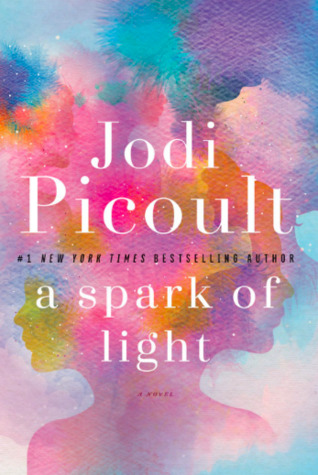 The warm fall day starts like any other at the Center—a women’s reproductive health services clinic—its staff offering care to anyone who passes through its doors. Then, in late morning, a desperate and distraught gunman bursts in and opens fire, taking all inside hostage.
The warm fall day starts like any other at the Center—a women’s reproductive health services clinic—its staff offering care to anyone who passes through its doors. Then, in late morning, a desperate and distraught gunman bursts in and opens fire, taking all inside hostage.After rushing to the scene, Hugh McElroy, a police hostage negotiator, sets up a perimeter and begins making a plan to communicate with the gunman. As his phone vibrates with incoming text messages he glances at it and, to his horror, finds out that his fifteen-year-old daughter, Wren, is inside the clinic.
But Wren is not alone. She will share the next and tensest few hours of her young life with a cast of unforgettable characters: A nurse who calms her own panic in order save the life of a wounded woman. A doctor who does his work not in spite of his faith but because of it, and who will find that faith tested as never before. A pro-life protester disguised as a patient, who now stands in the cross hairs of the same rage she herself has felt. A young woman who has come to terminate her pregnancy. And the disturbed individual himself, vowing to be heard.
This was a fascinating story, and well crafted, as it weaves
together the stories of several lives as they intersect on one particular day
at a woman's reproductive health clinic.
Some are there to get an abortion, some are there to get the
pill, some are there because they work there, they are the abortion doctor, or
that is where they receive they're gynecological exams. Whatever the reason, on
this fateful day all their lives are thrown together when an anti-abortion
activist starts shooting.
This story was a bit difficult to follow, at first, as it
traces the story backwards. Immediately you're thrust into the story, amongst
the hostages, the negotiator, and the gunman. It's always difficult for me when
a story jumps back and forth between perspec
tives, and this story followed ten
different people, and it jumped rather frequently.
The thing that Picoult is so skilled at is revealing the
story, bit by bit, until all the pieces begin to come together, finally, into a
whole, at the very end. And when you finally get a major reveal you've been
waiting for the whole time you've been reading, often you end up making some
audible sound, like a gasp, because you just didn't see it coming. At least,
that's how it was for me, though not as strongly this time, as I predicted the
sort-of big reveal before it happened, though not until I was at least half-way
done.
The parts I loved about this story were the different
character's stories and how they all fit together to tell this overarching
story about abortion from all sides. Going into this story, you might just
think it's a pro-live vs. pro-choice struggle. But there are so many facets
that make up the abortion discussion, that aren't as often brought up. Picoult
makes sure to touch them all. I learned so much just reading this book - and I
highly recommend reading Picoult's "Author's Note," as well, where
she speaks personally about her thoughts on abortion.
That being said, what kept this from being higher rated for
me were the numerous times that this story felt less like a story and more like
a "covering all the bases" blanket statement about abortion. As much
as I appreciated all the information about abortion, sometimes the story
element was lacking and a character became a mouth-piece to tell me a specific
fact or point of view about abortion rather than me feeling link this was
something heart-felt by that character. This story is definitely coming in at a
time where these kinds of discussions are raging and abortion is painting a
wide swath in a political landscape. This notion unfortunately colors my
enjoyment of the story, a bit, as it feels like a PSA rather than a story.
But otherwise, I really felt like this was well done and is
definitely up there in my list of favorite Picoult books. I would definitely
recommend it to anyone because perspective is necessary when it comes to topics
like these. Empathy is an amazing eye-opener, and getting an idea of what
someone facing such a choice might be thinking or feeling or even knowing what
their life is like is important and humanizing, a point that Picoult is
emphasizing, underlining, and exclaiming with every word. So read it.
No comments:
Post a Comment